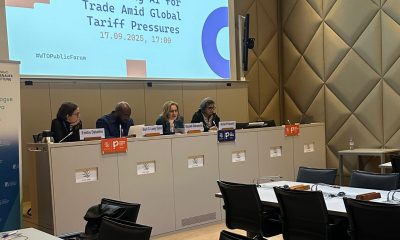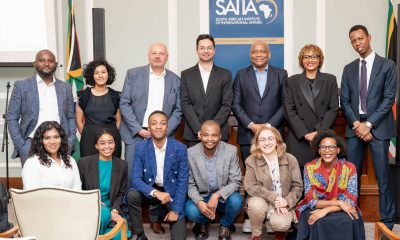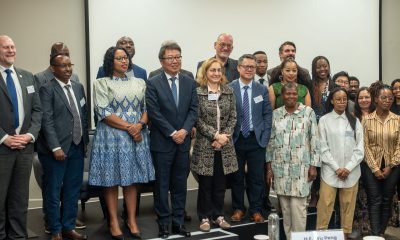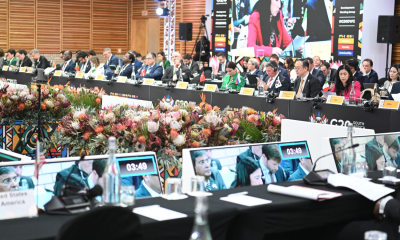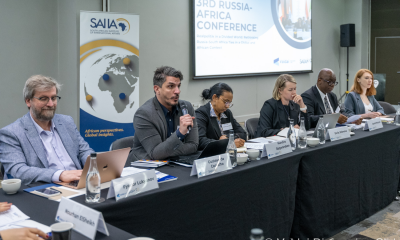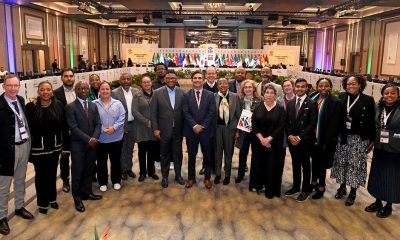Brazilian President Lula da Silva posited at a recent meeting of the UN General Assembly that reform of global finance institutions (WB and IMF) was critical. He warned that emerging countries would look elsewhere for funding support should existing power relations continue unchanged. The future relevance of the current global economic governance architecture will depend on whether these global institutions become more inclusive and efficient.
South Africa will be hosting the G-20 Finance meeting in Cape Town on 17-18 November 2007. The G20 Finance is an informal grouping of Finance Ministers and Reserve Bank Governors that has emerged in an attempt to reach consensus on issues of international concern, including the reform of the Bretton Woods Institutions to make them more representative in a changing global geopolitical context.
In this light, the South African Institute of International Affairs (SAIIA) will host an event, ‘Emerging Powers and their role in Global Economic Governance: Impetus for reform’ on 30 October 2007. The conference will focus on the role of emerging powers in reforming global economic governance institutions. The keynote address of the SAIIA conference will be delivered by Jason Milton: Head of the G20 Unit, SA Reserve Bank. Other topics that will be addressed throughout the conference include the need for reform of the existing global economic governance architecture, and secondly, the role of regional initiatives (in the form of regional development banks and new financing mechanisms) and South-South cooperation in shaping the emerging economic governance architecture.
A conference organised by the South African Institute of International Affairs, the German Development Institute, and the Centre for International Governance Innovation (CIGI, Canada).
Tuesday, 30 October 2007
Jan Smuts House, University of the Witwatersrand, Johannesburg
Sponsored by the Konrad Adenauer Foundation and SIDA
Background
The phenomenal rise of China and India, but equally the growing assertion of other developing countries on the global stage such as Brazil and South Africa, has placed the debate about a reform agenda for global governance bodies squarely on the table. The future relevance of the current global economic governance architecture will depend on whether these global institutions become more inclusive and efficient, particularly by promoting a diverse and constructive dialogue with emerging powers and other middle-ranking developing states. Against this background, SAIIA, with other partners, is organising a conference examining the role of emerging powers in reforming global economic governance institutions. This event will precede the G20 Finance meeting that will be chaired by South Africa in November 2007.
PROGRAMME
9:00-9:30 Registration
9:30-10:00 Welcome and introduction by Elizabeth Sidiropoulos (SAIIA) and Werner Boehler (KAS)
10:00-11:00 Keynote address: Democratising global economic governance: The International Monetary Fund
Jason Milton, Head: G20 Unit, SA Reserve Bank
11:00-11:30 Tea/coffee
11:30-13:00 Session One: Reforming the existing global economic governance architecture
The World Bank and the International Monetary Fund have played a central role in international economic relations and development since the end of the Second World War. However, the shifting nature of global power structures makes it necessary to interrogate their relevance in the 21st century. While most of their activities are carried out in the developing world, their structures make them accountable to the industrialised countries. The need to increase the ‘voice’ of the developing world and these institutions’ accountability towards them is a critical element of this debate. This session intends to look at the role of both formal and informal institutions and arrangements at the global level, such as the Bretton Woods financial institutions and ECOSOC, as well as informal arrangements (G20 Finance, G8 and G5). (The WTO will purposefully not be included in this session). Moderator: Peter Draper, Programme Head, Development Through Trade, SAIIA
Panellists
Dr Jo Marie Griesgraber, New Rules for Global Finance
Dr Colin Bradford, The Brookings Institution, Washington DC
Dr Thomas Fues, German Development Institute
Dr Enrique Saravia, Getulio Vargas Foundation, EBAPE-FGV, Brazil
13:00-14:00 Lunch
14:00-16:00 Session Two: The role of regional initiatives in reshaping the architecture of global economic governance
Besides the role of global institutions, regional institutions are also important in promoting equitable economic governance. This session will touch on the role of emerging powers within regional structures, such as the African Development Bank, and looks specifically at innovative financing mechanisms for development within their particular region. In the African context for example, the continent launched a Pan-African Infrastructure Development Fund sourced entirely from Africa in June 2007.
Moderator: Neuma Grobbelaar, Director of Studies, SAIIA
Panellists
Philip Buyskes, International Finance, Development Bank of Southern Africa
Lesiba Morallane, Investment Director, Pan African Infrastructure Development Fund
Dr Gu Yang, China Development Bank
16:00-16:30 Tea/Coffee
16:30-18:00 Session Three: The potential for South-South cooperation on influencing the emerging global economic governance architecture
While there is widespread recognition of the need for reform, the experience of the last few years indicates that this will be a difficult process that holds many political minefields for countries. How can emerging powers and other developing states cooperate on moving the reform agenda forward? How can informal coalitions or groupings assist in this regard? What contribution can emerging powers make as responsible new actors in global governance institutions?
Moderator: Dr Colin Bradford, The Brookings Institution and the Centre for International Governance Innovation
Panellists
Professor Li Anshan, Peking University
Vincente Yu, South Centre, Geneva
Dr Sachin Chaturvedi, Research and Information System for Developing Countries (RIS), India
Dr Garth le Pere, Institute for Global Dialogue
For further information, please contact the SAIIA Media Liaison Officer.


